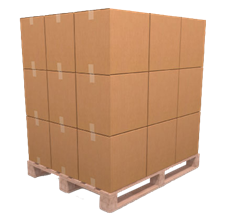
by logisticsplus | Dec 2, 2015 | News

LTL shipping refers to the process of transporting relatively small freight shipments that weigh anywhere between 150 to 10,000 lbs. Unlike Full Truck Load (FTL) prices, which are usually based on a more simplistic rate per mile system, LTL rates are calculated from several variable factors. Knowing these factors can be helpful in setting more realistic expectations and increasing long-term savings. Here are some factors used to determine LTL freight shipping rates:
Weight & Density
These two basic aspects of your shipment greatly determine how much you will be charged. Freight companies generally rate shipments at the lowest weight category and rate, meaning that the more a shipment weighs the less it costs per hundred pounds. Weight is also used to calculate density, and is one of the main components used to determine the classification of the shipment, which in turn affects the final rate. Logistics Plus provides a helpful, online freight density calculator if you want to quickly know the density of your shipment.
Freight Classification
The National Motor Freight Traffic Association (NMFTA) has established “freight classes” which are used to classify commodities for rating purposes. Classifications are based on the products’ density, stow-ability, value, handling and liability. Each commodity is categorized into one of 18 different freight classifications. Generally, the lower the freight class, the more dense the commodity, and, therefore, the lower the rate per hundred pounds. You can read more about freight classification on the Logistics Plus website.
Origin and Destination
Shipments that need to travel farther usually have higher rates as well. Shippers should find out which LTL carriers serve their intended destination to avoid interlining; a practice where one LTL carrier resorts to transferring its shipments to other carriers due to their limited reach. Interline shipments often tend to cost more and are more susceptible to loss or damage. Also shipments that require additional time or special equipment at time of pickup or delivery may also incur additional fees (called “accessorial fees” as discussed below). Examples include pickups or deliveries to residential locations, convention centers, construction sites, airports, wharfs, or container freight stations.
Base Rates
Ever since the industry was deregulated in the early 1980s, LTL carriers set their own base rates (i.e.,”list price”) from which discounts can be negotiated. Base rates can vary by company and by lane, making true apples-to-apples rate comparisons very difficult unless you know what you are doing. Logistics Plus provides shippers with the ability to request a free freight analysis if you’re unsure on how to compare rates to ensure you’re getting the best possible deal.
Absolute Minimum Charges
These are the minimum prices charged by LTL carriers, below which they will not go any lower – no matter what discounts may have been negotiated. The absolute minimum charge (MC) helps ensure carriers cover all of their fixed costs on a particular shipment or lane. If a high percentage of your shipments are small, or move across short distances, absolute minimum charges may play an important factor in your overall transportation spend.
Accessorial Fees
Accessorial fees apply when additional services are required to handle your shipment – those above and beyond the typical dock-to-dock pickup and delivery service most LTL carriers provide. Common examples include liftgate service, weekend delivery, and pickup or delivery at special origin and destination locations (as noted above). Fuel surcharges are the most common accessorial fee that LTL carriers charge since they are typically included on every shipment. Often times specific accessorial charges can be waived or reduced, so it’s important to understand how these fees impact your overall expenses and then include them in your negotiations.
Negotiating Rates
Shippers can save money on their LTL freight spend by negotiating base rates, discounts, and minimum charges with their LTL carriers. Alternatively, a professional freight management company, such as Logistics Plus, can negotiate with LTL carriers on your behalf. Top freight management companies are able to leverage their collective buying clout, analytical expertise, and carrier relationships to provide even greater savings to shippers, particularly those that are small or mid-sized companies.
If you feel like you’re spending too much on LTL freight, or if you lack the resources or expertise to negotiate your own rates, please consider working with Logistics Plus. As a top 50 freight brokerage firm, our LTL experts help hundreds of companies save on their LTL shipping every day. As mentioned earlier, we can provide you with a no-obligation freight analysis for multiple shipments, or we can help you get a quick and accurate freight quote for a single shipment.


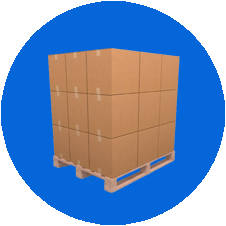
by Scott Frederick | Oct 12, 2015 | News
 Freight management solutions are a core competency for Logistics Plus. In fact, the company was founded nearly 20 years ago to provide inbound domestic freight management services to GE Transportation, a division of General Electric (GE) – one of the largest companies in the world. The success we demonstrated in those early years opened up doors to a variety of other solutions, such as warehousing, international freight forwarding, and global trade compliance. Despite our global footprint and expanded solutions portfolio, freight management remains a central part of our core service offerings. Today we help thousands of companies manage their freight – and we even provide on-site managed transportation solutions to a number of large clients.
Freight management solutions are a core competency for Logistics Plus. In fact, the company was founded nearly 20 years ago to provide inbound domestic freight management services to GE Transportation, a division of General Electric (GE) – one of the largest companies in the world. The success we demonstrated in those early years opened up doors to a variety of other solutions, such as warehousing, international freight forwarding, and global trade compliance. Despite our global footprint and expanded solutions portfolio, freight management remains a central part of our core service offerings. Today we help thousands of companies manage their freight – and we even provide on-site managed transportation solutions to a number of large clients.
If your company ships less-than-truckload (LTL), truckload, and expedited freight shipments on a regular basis, we invite you to try our four-step approach to better rates and service.

The secrets to our freight management and managed transportation success are as follows:
- Talented, experienced and caring logistics professionals
- Honesty and transparency with our customers and our carriers
- Great rates, super carriers, and outstanding service
- Shipment visibility and responsiveness to potential problems
- Customized, user-friendly technology and freight management tools
If you’re interested in trying any or all of our 4-steps to freight management success, please visit our online freight headquarters at www.logisticsplus.com/freight-hq or click the image below to get started.
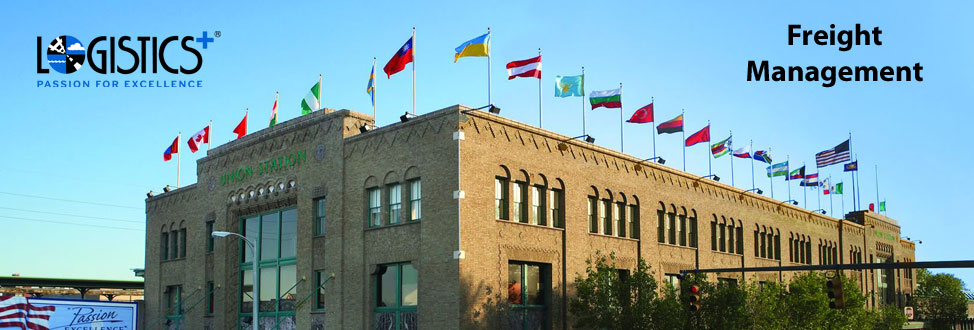
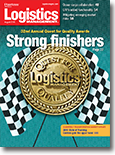
by Scott Frederick | Aug 21, 2015 | News
 Earlier this month, Logistics Management magazine unveiled the results of its 32nd Annual Quest for Quality Awards recognizing some of the highest-quality carriers in the industry. This year, its survey results yielded 125 providers of transportation and logistics services. To determine who wins the vote, Logistics Management readers evaluate companies in all modes and service disciplines, choosing the top performers in categories including motor carriers, railroad and intermodal services, ocean carriers, airlines, freight forwarders, ports, third-party/contract logistics services.
Earlier this month, Logistics Management magazine unveiled the results of its 32nd Annual Quest for Quality Awards recognizing some of the highest-quality carriers in the industry. This year, its survey results yielded 125 providers of transportation and logistics services. To determine who wins the vote, Logistics Management readers evaluate companies in all modes and service disciplines, choosing the top performers in categories including motor carriers, railroad and intermodal services, ocean carriers, airlines, freight forwarders, ports, third-party/contract logistics services.
Logistics Plus, being a smaller-sized third-party logistics company, was not included on the survey ballot (but we’ll see if we can change that in the coming years). However, many of our core LTL freight carriers were on the ballot and many also won awards. So we’d like to congratulate the following Logistics Plus LTL freight carriers for winning Quest for Quality Awards this year:
- FedEx Freight (National and Multiregional LTL categories)
- Con-way Freight (National LTL category)
- Holland (Midwest/North Central LTL, South/South Central LTL and Expedited categories)
- Pitt Ohio (Northeast/Mid-Atlanta LTL category)
- New Penn (Northeast/Mid-Atlanta LTL and Expedited categories)
- A. Due Pyle (Northeast/Mid-Atlanta LTL and Expedited categories)
- Southeastern Freight Lines (South/South Central LTL category)
- Reddaway (Western LTL category)
Additionally, there were a number of truckload, expedited, ocean and air freight carriers that Logistics Plus has worked with in the past year that won Quest for Quality awards, including Miller Transporters, Ruan Transport, Prime, Landstar, and J.B. Hunt (truckload carriers); Panther Premium Logistics and FedEx Custom Critical (expedited motor carriers); Maersk Line, Hapag-Lloyd, Evergreen Line, OOCL, and COSCO (ocean carriers); and Cathay Pacific, British Airways, Delta Air Lines, Korean Air, Lufthansa, Emirates SkyCargo, and FedEx Express (airfreight carriers).
Reputable and quality carriers not already a part of the Logistics Plus network can click the button on the left below to start the process of becoming a carrier. Shippers looking for quality carriers through a third-party logistics partner can click the button on the right below to request a risk-free quote.


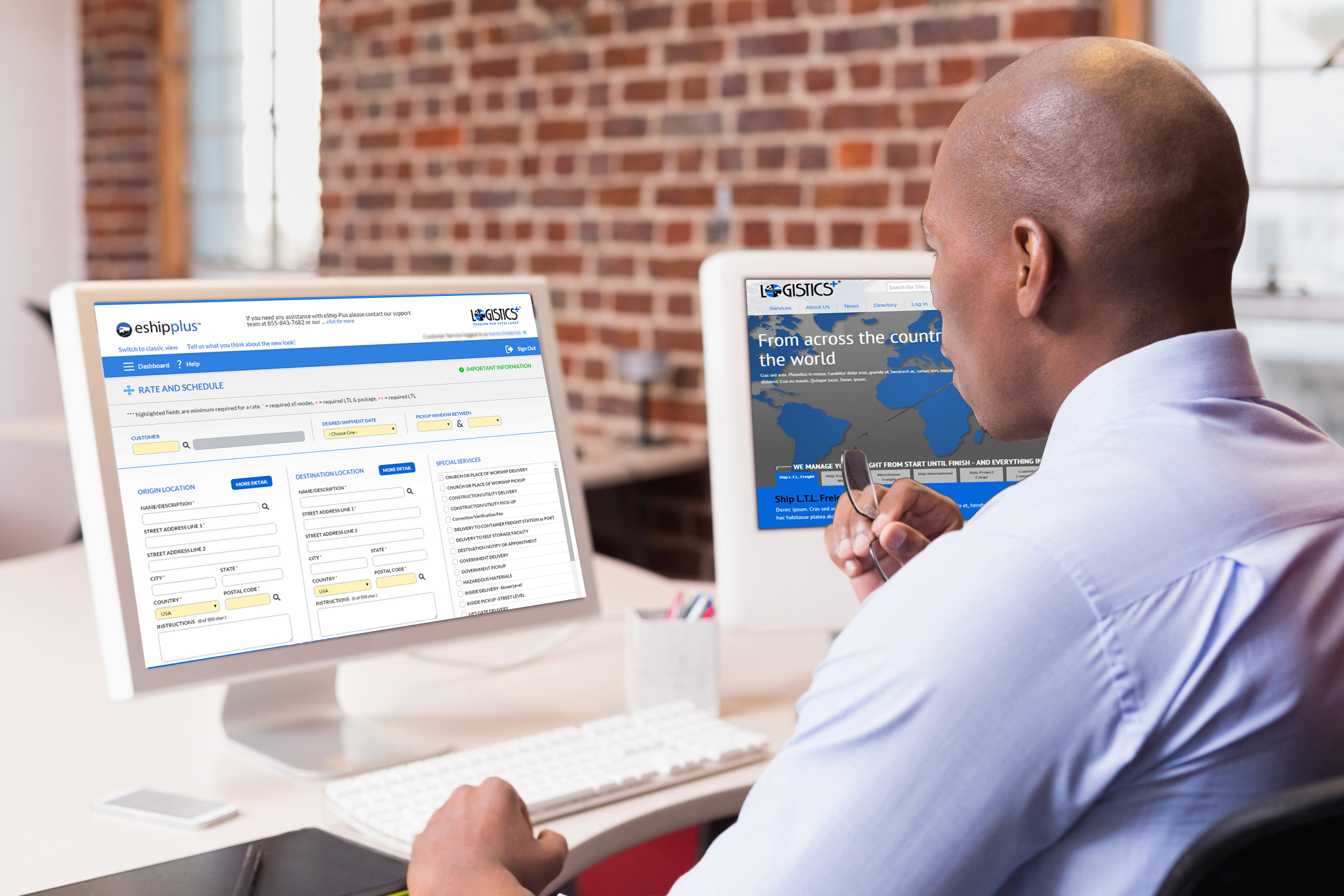
by logisticsplus | Aug 18, 2015 | News
 Businesses that ship less-than-truckload (LTL) freight shipments would benefit from using a transportation management system (TMS). Most large companies with big freight expenditures are already using a TMS, either with or as a part of their enterprise systems. However, those same benefits are also available to smaller companies with lower freight spending. This is often done by working with a reliable third-party logistics (3PL) partner (such as Logistics Plus). Contrary to what many may believe, most transportation management systems today are web-based and can be inexpensively integrated with a company’s back office or order management system.
Businesses that ship less-than-truckload (LTL) freight shipments would benefit from using a transportation management system (TMS). Most large companies with big freight expenditures are already using a TMS, either with or as a part of their enterprise systems. However, those same benefits are also available to smaller companies with lower freight spending. This is often done by working with a reliable third-party logistics (3PL) partner (such as Logistics Plus). Contrary to what many may believe, most transportation management systems today are web-based and can be inexpensively integrated with a company’s back office or order management system.
There are many benefits to using a TMS. The use of a TMS will help ensure your LTL freight loads are matched to the ideal carrier so that you can get the best rates without sacrificing the service you need. More specifically, here are five key benefits to using a TMS for LTL freight management:
- Streamlined visibility to carrier rates and services: With a robust TMS, you can enjoy instant, real-time access to freight rates and transit times for multiple carriers. Not having to call multiple carriers or access multiple websites is a real time-saver. A TMS can also be customized to your specific shipping patterns and lanes, which leads to greater efficiencies for LTL carriers and better rates and service for you.
- Simplified data entry and the elimination of manual steps: TMS automation features allow you to save your customer, vendor, and product data in an easy-to-retrieve database. This creates bills of lading and other shipping documents fast and easy with little need for manual entry. It also improves document accuracy, which alleviates many downstream issues.
- Improved visibility to your shipments and documentation: Knowing your freight location allows you to be more responsive to your customers or monitor routing compliance with your vendors. Being able to pull bill of lading copies, standardized invoices, and proof of delivery documents not only creates back-office efficiencies but fosters better communication and builds better relationships with your customers and vendors.
- Freight invoice consolidation and auditing: LTL freight pricing and auditing can be complex with fuel surcharges, freight classifications, minimum density rules, and more. A good TMS should house all carrier pricing, rules, and shipment information for easy access and to provide reporting and auditing on variances between quotes and actual freight invoices.
- Availability of analytics and data: With reports generated from your TMS, you can gain better insight into your LTL freight shipping activity, costs, and service trends. Better information allows you to make future business decisions based on facts and not gut or opinion.
As mentioned earlier, smaller companies that don’t have access to a TMS today should consider partnering with a reputable 3PL with a robust TMS. If you choose to partner with Logistics Plus, you’ll receive free access to our online eShipPlus™ TMS platform. Our eShipPlus platform is a proven TMS which customers have been using for nearly a decade. In addition to all of the LTL benefits described above, eShipPlus also provides shippers with access to truckload shipment quoting, booking, and reporting functionality.
If you’re new to Logistics Plus, become our customer, and we’ll provide you complimentary access to eShipPlus. If you’re interested in integrating eShipPlus with your ERP or order management system, please email nadops@logisticsplus.com for more information. If you have general questions about our LTL freight services or tools, please click the button below.


by Scott Frederick | May 27, 2015 | News
 Are you new to freight shipping?
Are you new to freight shipping?
In today’s lean workplace environment, it’s not uncommon for managers to ask employees to wear “multiple hats.” Operations people may be asked to make sales calls, accounting professionals may be asked to fill-in for operations, or office personnel might be asked to arrange for freight shipping. This latter example might happen with greater frequency as some owners or plant managers may view freight shipping as nothing more than calling a couple freight carriers for quotes and then arranging for a pickup – but as many of us know, there’s a little more to it than just that. So here’s a quick freight shipping 101 primer for those of you just starting out.
What is freight shipping?
Although the term “freight” can generically refer to “a charge paid for carriage or transportation of goods,” in the U.S. the term most often refers to larger (non-parcel) sized shipments that move with a less-than-truckload (LTL) or full truckload (FTL) carrier.
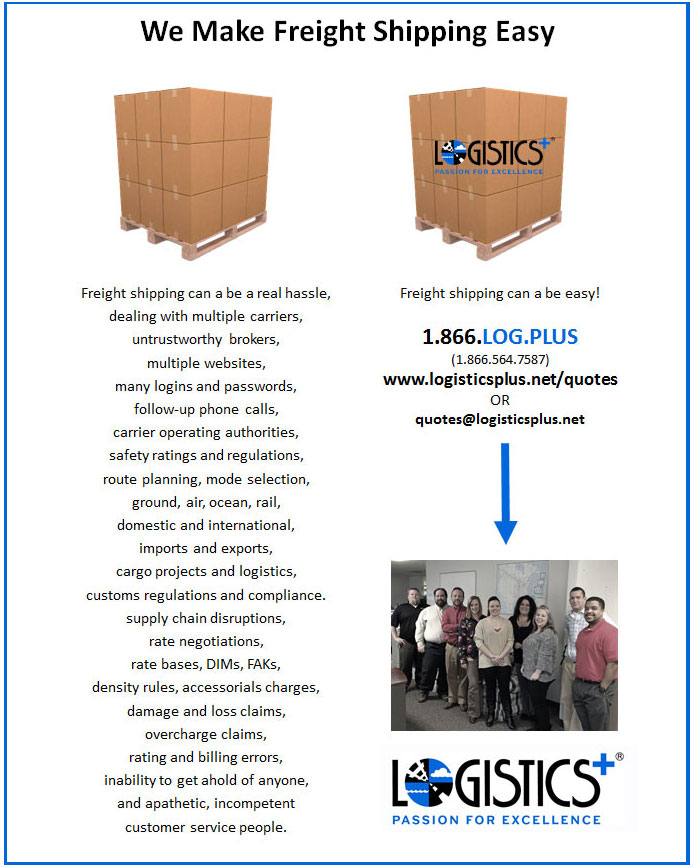 LTL shipments occupy only a portion of the truck’s trailer, generally range anywhere from 150 to 10,000 pounds, and are often shipped on pallets or skids. LTL carriers normally have set routes where they routinely pickup and deliver their shipments. Local “city” trucks will make deliveries and pickups throughout the day. LTL shipments picked up are brought back to a local freight terminal where they are consolidated for highway travel. “Linehaul” trucks will then move full trucks from one city to the next, where the local city operation will deconsolidate shipments for final delivery. Because of the “network” investments needed for this type of operation, the majority of LTL shipments handled in the U.S. are handled by as few as 25 national or regional LTL carriers. When you buy LTL services, you are basically renting a portion of the trailer for your shipment. Because there are limited alternatives, negotiating good rates and maintaining leverage with your selected carriers is important. Working with a reputable 3PL/broker that specialized in LTL service can help you secure competitive rates and ensure you are getting good customer service.
LTL shipments occupy only a portion of the truck’s trailer, generally range anywhere from 150 to 10,000 pounds, and are often shipped on pallets or skids. LTL carriers normally have set routes where they routinely pickup and deliver their shipments. Local “city” trucks will make deliveries and pickups throughout the day. LTL shipments picked up are brought back to a local freight terminal where they are consolidated for highway travel. “Linehaul” trucks will then move full trucks from one city to the next, where the local city operation will deconsolidate shipments for final delivery. Because of the “network” investments needed for this type of operation, the majority of LTL shipments handled in the U.S. are handled by as few as 25 national or regional LTL carriers. When you buy LTL services, you are basically renting a portion of the trailer for your shipment. Because there are limited alternatives, negotiating good rates and maintaining leverage with your selected carriers is important. Working with a reputable 3PL/broker that specialized in LTL service can help you secure competitive rates and ensure you are getting good customer service.
Truckload (or FTL) carriers differ from LTL carriers in that they have no predefined network. Their drivers and trucks typically make a pickup and then deliver directly to the final destination (where they must find another shipment to haul somewhere else). Truckload shipments generally weigh over 10,000 pounds, occupy the majority of a truck’s trailer, or have some unique dimensions or handling requirements. Because anyone with a truck can make a pickup and/or delivery, there are thousands of truckload carriers specializing in all types of equipment: dry vans, flatbeds, refrigerated trailers, liquid tanks, and more. When you by FTL services, you are basically renting the entire trailer for your shipment. Because choices are unlimited, finding reliable and safe truckload carriers with the right equipment at the right price can be a time-consuming effort. Working with an experienced 3PL/broker that specializes in truckload service can help minimize time commitments and safety concerns. Experienced and reputable 3PLs like Logistics Plus will pre-screen carriers to ensure they have the proper operating authorities, insurance, and safety background. They will also be adept at using load boards and other transportation management tools to find you the right carrier at the right price.
How should I pack my shipments?
You should package, crate, or stack on pallets securely to prevent damage. Use banding, shrink-wrap, stretch-wrap, or breakaway adhesive to effectively secure cartons to the pallet. A freight carrier can void any liability for damage due to improper packaging. Be sure to stack cartons squarely on a skid, leaving no overhang. Make sure the top surface is flat. Do not forget to place labels on every piece or package. Because you are essentially paying for “space” on the trailer, eliminating or minimize any and all “dead space” in your shipment will result in the most economical freight charges.
What is a bill of lading?
Simply put, a bill of lading is the most important document in the shipping process. One is required for each shipment, and acts as both a receipt and a contract. A properly completed bill of lading legally shows that the carrier has received the shipment as described, and is obligated to deliver that freight in good condition to the consignee (the receiver of the shipment). Many businesses will have their own standard bill of lading. If not, your carrier or 3PL will generally be happy to provide you with one (in the case of Logistics Plus, we’ll even help you complete it and schedule the shipment with your carrier).
What is freight classification?
Freight Classification (“class”) is a National Motor Freight Classification (NMFC) standard used to classify and rate commodities (items you are shipping) primarily based on their density and value. Each commodity is categorized into one of 18 classes – lowest being class 50 and highest being class 500 – based on four transportation characteristics (per NMFC): density, stowability, handling, and liability. Freight classification will only come into play when you are shipping LTL freight shipments. If you don’t know the freight class for whatever you are shipping, most carriers or 3PLs will help you make that determination. Truckload shipments normally move on a cost-per-pound basis based on the weight and distance of the shipment being transported, and therefore freight class is not required.
Who pays the charges for a freight shipment?
A freight shipment will move “prepaid” or “collect,” and sometimes with the added distinction that it is “third-party billed.” A prepaid shipment means that the shipper is responsible for the freight charges and a collect shipment means that the consignee is the responsible party. A third-party billed shipment means that a third-party (neither the shipper nor the consignee) will receive the invoice and pay for the shipment on the shipper’s or consignee’s behalf. When you work with a 3PL such as Logistics Plus to manage your freight shipping, all of your shipments should be designated as third-party billed. Good 3PLs will then audit the bills for accuracy and send you a consolidated invoice of all of your shipping activity for your convenience.
Is my freight delivery service guaranteed?
Standard LTL or truckload service is never guaranteed, so selecting a reliable carriers is especially important if your shipment needs to be delivered on a specific day or within a specific date range. Many carriers provide additional service options for “guaranteed” or “expedited” delivery service. These services will cost more, but sometimes they can be worth it for the added peace-of-mind. If requested, Logistics Plus can provide guaranteed or expedited price quotes for both LTL and truckload services.
It is also important to note that most carriers will not guarantee their pickup dates or times either. When you schedule a freight shipment pickup, be sure to allow adequate time for the carrier to arrive, ideally one day in advance but no later than 3:00 pm the day of pickup. Be sure to provide the carrier with your “dock time” or “pickup availability” time window so that they can arrive for the pickup at a time that is works for you and your staff. Some carriers are much more reliable with their pickups than others. A knowledgeable 3PL like Logistics Plus can help you select the best carrier based upon your needs.
What are accessorial services and fees?
As part of the standard process, freight carriers will generally pickup and deliver your shipment to or from a freight dock or a designated area that is directly accessible or immediately adjacent to the carrier’s delivery vehicle. Any service request that goes above and beyond that basic description could result in an “accessorial fee” being applied to your freight bill. Examples of common accessorial services are listed below.
- Lift gate service
- Inside pick up or delivery
- Residential service
- Reweigh and inspection
- Cubic capacity or density rules
- Collect on delivery (COD)
- Fuel surcharge
- Arrival notification
- Insurance
Most carriers will publish these services and fees in a “rules tariff” or a standard rate schedule and will make it available online or upon request. 3PLs or carriers with transportation management systems (TMS) technology will often have these rates pre-loaded into the system so that you will know when these fees applies based on the characteristics of your shipment. Logistics Plus uses a proprietary and powerful TMS solution called eShipPlus™.
What happens if my freight shipment is damaged?
Claims are handled directly between the shipper, consignee and the carrier. Logistics Plus is not involved in the actual claims process and cannot influence in the carrier’s claim decision. That said, because we provide a lot of business to carriers, we can often help expedite the resolution process on your behalf. You have within 90 days of delivery to file a claim with the carrier. The claimant should only file for loss or damage on the product which was shipped. Always be as thorough as possible in noting specific damage on the delivery receipt. This will help protect your interests later on if a freight claim is submitted to the carrier. Our logistics specialists can provide you with freight claims help and assistance with the proper forms if needed.
How can Logistics Plus help me save on my freight shipping?
For nearly 20 years, Logistics Plus has been helping businesses manage their freight shipping and logistics. Our logistics experts have helped hundreds of customers save significant money and improve their operating efficiency by starting with a free freight analysis of their shipping activity. Our eShipPlus TMS provides customers with powerful, online freight management tools with the ability to efficiently and affordably shop rates across multiple carriers, schedule pickups, track shipments, and more. All these services and savings help to positively impact your bottom line. And the best part of all — there is no additional cost to you to use our freight management services. Contact us for more information or get a quick quote on your next freight shipment.


Page 15 of 16« First«...1213141516»















